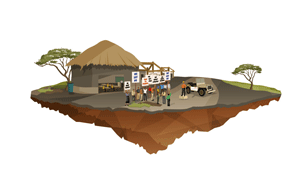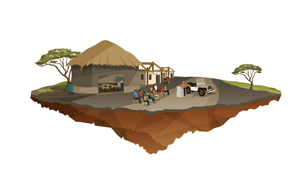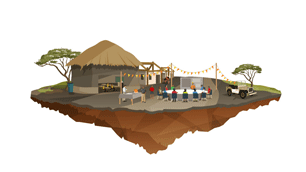Wherever we operate, we invariably have a significant presence, both in physical scale and as an employer in the local economy. So we do all we can to ensure we make a positive contribution to the communities in which we work. This means listening actively to understand people's expectations and helping them to understand ours.
Why is this important to us?
Companies are expected to play an active part in their local neighbourhoods – to see them not just as physical locations, but as communities of which they're part, and which they strengthen over time. This is not just about giving money to community projects, although that has a role. It's about understanding the broader context and needs of each community, supporting and strengthening the local economy, and protecting the natural assets that people depend on, now and in the future.
Our challenge

The heart of the issue here is our social licence to operate. This means developing the trust and support of governments and communities who live near our operations. It means maintaining thoughtful dialogue, without which stakeholders may develop unrealistic expectations of us, and conflict may arise. It also means dealing with issues that are our responsibility, and lending a helping hand when there are other problems – for example, giving support after a flood or natural disaster. Ultimately, we aim to manage our impact while making as positive a contribution as possible.
Our action

We need to understand the social context in which we operate, look at the impacts we have, and really listen to our community to understand what they think is important and how they want to engage with us. By continuing to behave as good neighbours and engaging in active dialogue at local level, we can avoid misunderstandings that can lead to disruptions and distrust. We also need to go one step further, by playing an active role in creating communities that are thriving and resilient, and making thoughtful, well-targeted contributions.
Our potential to create value

If we're trusted by our local communities, we'll be able to work as true partners with local stakeholders. In this way we can co-develop initiatives and solutions for the good of each community. This will help us to run successful, responsive and efficient operations, and protect and enhance our reputation wherever we are in the world.
